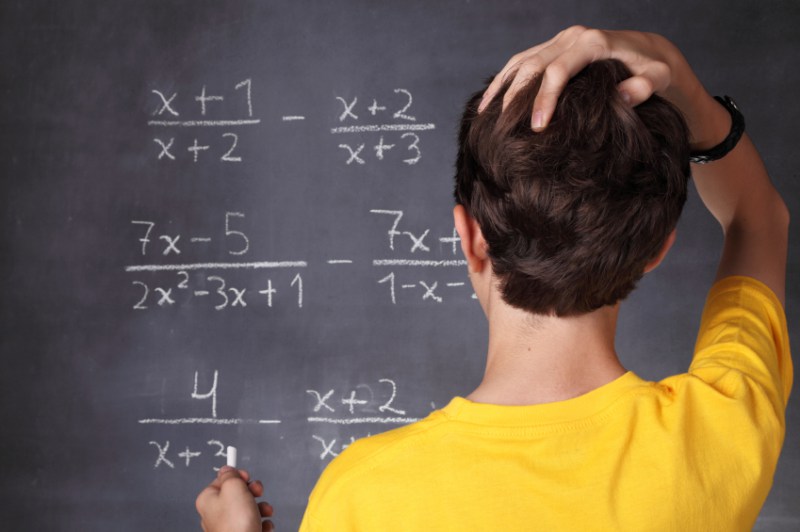Maths has been regarded with an air of dread by generations of students struggling to get their heads around algebra and Pythagoras theorem, but it is one of the most important subjects for pupils to be successful in to increase their chances of getting a good job in later life.
So what can be done to encourage children to excel at maths? According to a new report, adopting a teaching method used in the Far East could be the answer.

Singaporean maths mastery
Global exam league tables show that children from Singapore are typically storming ahead of British pupils in terms of maths exam results.
A new study carried out by researchers at Cambridge University and the University College London Institute of Education has looked at why this is the case, finding that Singapore’s ‘maths mastery’ approach to teaching appears to hold the answer.
The study authors explained: “Until now, there has been little proof that such an approach can be successfully introduced into western education systems.
“Cultural and historical differences have made it difficult to establish why Singaporean children are so far ahead of their English counterparts when it comes to maths.”
The study involved over 10,000 UK pupils and followed the Singaporean method of not dividing students into groups based on ability, but instead teaching the same content to all children, waiting for academically weaker individuals to achieve a basic understanding of a topic before the whole class moves on to the next one.
Maths mastery places a focus on problem solving and using props to work out sums, making the subject as interactive and memorable as possible for children.
This allows students to spend longer getting to grips with a particular subject, possibly explaining why Singaporean pupils tend to outperform their UK counterparts in the exam league tables.
After a year of following the maths mastery programme, students’ maths scores increased, with this equivalent to making an entire month’s progress over the course of the year.
What’s more, the researchers predict being taught via the maths mastery method throughout school could see pupils earning up to £200 more per year in later life than their counterparts who are divided into sets based on ability.
Independent schools
When looking at the exam league tables, it’s also clear to see that independent school pupils typically achieve higher results than students who attend state schools.
Figures from the Joint Council for Qualifications and the Independent Schools Council (ISC) released in 2014 showed that 48.2 per cent of private school pupils achieved an A* or A grade in their A-levels that year in comparison to just 22.5 per cent of students at other exam centres.
In terms of science, technology, engineering and maths (STEM) subjects, those taught at independent schools performed significantly better than state school pupils, with the former accounting for 34 per cent of all physics A* A-level grades achieved in 2014.
Speaking to the Telegraph last year, Head Of Press at the ISC Tracy Cook commented: “The surprise is how big that gap is between independent and state sector pupils’ results.
“It is indicative of the significant added value provided by independent schools, due to factors such as intensive, focused teaching and smaller class sizes.”
Dispelling the maths gender divide
Another factor that could increase pupils’ maths exam scores is dispelling the gender divide that has surrounded the subject for many years.
Typically, boys achieve higher scores in the subject than girls, while figures from the Institute of Physics show that 60 per cent of maths A-level students between 2010 and 2012 were male.
However, some of the UK’s most prominent maths figures are female – take former and current Countdown Co-Hosts Carol Vorderman and Rachel Riley, for instance.
What’s more, a recent study from Washington State University suggested that it was not women’s capabilities leading to lower maths scores, but rather men’s overestimation of their abilities.
Lead author of the report Shane Bench stated: “Despite assumptions that realism and objectivity are always best in evaluating the self and making decisions, positive illusions about math abilities may be beneficial to women pursuing math courses and careers.”
Maths is unlikely to become every pupil’s favourite subject anytime soon, but with the right education and encouragement, all students should be able to do their best and achieve the exam scores they deserve.